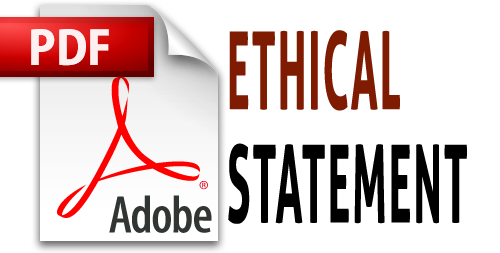PROSES PRODUKSI JERUK PADA PENGUSAHA JERUK DI LEMBANG, KABUPATEN BANDUNG BARAT
Abstrak
Kegiatan produksi merupakan suatu kegiatan yang berhubungan dengan konsumsi dan distribusi. Hal ini berkaitan dengan proses produksi. Proses produksi yang buruk dari suatu pabrik/perusahaan akan menimbulkan kerugian sehingga pabrik atau Perusahaan tersebut akan mengalami kesulitan dalam bersaing dengan industri sejenis. Metode yang digunakan adalah metode kualitatif deskriptif. Teknik pengumpulan data yang dilakukan adalah wawancara kedalaman dengan pengusaha jeruk dan para pekejanya, Proses produksi jeruk yang dilakukan berdasarkan jenis aliran lini/garis yaitu Continuous, dan Tipe persediaan yang digunakan adalah Assemble-to-order. Proses produksi jeruk mempunyai beberapa tahapan. Pertama adalah pemanenan, yaitu memanen hasil jeruk yang didapatkan. Kedua, adalah penyortiran. Tujuannya adalah untuk memilah jeruk berdasarkan kualitasm dan ketahanan jeruknya. Ketiga, kegiatan penyimpanan. Kegiatan ini menganut FIFO system, yaitu barang yang pertama kali masuk ke gudang, maka akan dikeluarkan terlebih dahulu. Keempat adalah kegiatan pengiriman. Kegiatan proses produksi jeruk telah dilakukan dengan baik. Kegiatan yang dilakukan dalam proses produksi sangat rinci dan dilakukan setiap hari. Hal ini dikarenakan karena berdasarkan pesanan yang berlangsung setiap hari.
Production activities are activities related to consumption and distribution. This is related to the production process. A poor production process from a factory/company will cause losses so that the factory or company will experience difficulty in competing with similar industries. The method used is a descriptive qualitative method. The data collection technique used was in-depth interviews with orange entrepreneurs and their workers. The orange production process is carried out based on the line flow type, namely Continuous, and the type of inventory used is Assemble-to-order. The orange production process has several stages. The first is harvesting, namely harvesting the oranges obtained. Second, is sorting. The goal is to sort oranges based on their quality and durability. Third, storage activities. This activity adheres to the FIFO system, that is, the goods that enter the warehouse first will be released first. Fourth is delivery activities. The orange production process activities have been carried out well. The activities carried out in the production process are very detailed and carried out every day. This is because it is based on orders that take place every day.
Kata Kunci
Teks Lengkap:
PDFReferensi
Acosta, S. M., & Sant’Anna, Â. M. O. (2022). Machine Learning-Based Control Charts for Monitoring Fraction Nonconforming Product in Smart Manufacturing. International Journal of Quality & Reliability Management, 40(3), 727–751. https://doi.org/10.1108/ijqrm-07-2021-0210
Ahmad, D. S. N. A. (2024). Exploration of the Challenges in Adopting Smart Farming Among Smallholder Farmers: A Qualitative Study. Journal of Advanced Research in Applied Sciences and Engineering Technology, 45(1), 17–27. https://doi.org/10.37934/araset.45.1.1727
Ajie, A. M., & Syaroni, D. A. W. (2022). Analysis of Visual Elements on Healthy Cendol 18 Product Packaging Design to Consumers. Proceeding of International Conference on Business Economics Social Sciences and Humanities, 3, 417–423. https://doi.org/10.34010/icobest.v3i.168
Alexandri, M. B. (2009). Manajemen Keuangan Bisnis. Alfabeta.
Assauri, S. (2008). Manajemen Produksi dan Operasi. embaga Penerbit Fakultas Ekonomi Universitas Indonesia.
Bacovic, M. (2021). Total Factor Productivity Growth in Upper Middle Income Balkan Countries From 2000-2017, Total Economy and Sectoral Approach: The Growth Accounting Method. Argumenta Oeconomica, 2021(1), 79–97. https://doi.org/10.15611/aoe.2021.1.04
Burhansyah, R. (2023). Allocative Efficiency of Pontianak Siam Orange Farming in Sambas Regency, Indonesia. E3s Web of Conferences, 444, 2007. https://doi.org/10.1051/e3sconf/202344402007
Chen, N., Hu, F., Chen, J., Wang, K., Yang, C., & Gui, W. (2022). A Monitoring Method Based on FDALM and Its Application in the Sintering Process of Ternary Cathode Material. Sensors, 22(19), 7203. https://doi.org/10.3390/s22197203
Chen, X., Ma, T., Zhang, J., & Zhou, Y. (2019). Optimal Design of Process Flexibility for General Production Systems. Operations Research. https://doi.org/10.1287/opre.2018.1780
Choudhary, A. (2024). Interpretability of Causal Discovery in Tracking Deterioration in a Highly Dynamic Process. Sensors, 24(12), 3728. https://doi.org/10.3390/s24123728
Chrysochou, P., & Festila, A. (2019). A Content Analysis of Organic Product Package Designs. Journal of Consumer Marketing, 36(4), 441–448. https://doi.org/10.1108/jcm-06-2018-2720
Costa, D. P., Stuchi, E. S., Girardi, E. A., Gesteira, A. d. S., Filho, M. A. C., Lêdo, C. A. da S., Fadel, A. L., Silva, A. L. V. da, Leão, H. C. d., Ramos, Y. C., Passos, O. S., & Filho, W. dos S. S. (2020). Hybrid Rootstocks for Valencia Sweet Orange in Rainfed Cultivation Under Tropical Savannah Climate. Journal of Agricultural Science, 12(11), 40. https://doi.org/10.5539/jas.v12n11p40
Denkena, B., Bergmann, B., & Witt, M. (2021). Feeling Machine for Process Monitoring of Components With Stock Allowance. Machines, 9(3), 53. https://doi.org/10.3390/machines9030053
Dharmawan, B., Rosyad, A., Djuharyanto, T., Widjojoko, T., & Nurdiani, U. (2022). Feasibility Study of Orange Plantation Initiatives on State-Owned Enterprise in Central Java, Indonesia. E3s Web of Conferences, 361, 1006. https://doi.org/10.1051/e3sconf/202236101006
Domingues, A. R., Marcolini, C. D. M., Gonçalves, C. H. da S., Resende, J. T. V. de, Roberto, S. R., & Carlos, E. F. (2021). Rootstocks Genotypes Impact on Tree Development and Industrial Properties of ‘Valencia’ Sweet Orange Juice. Horticulturae, 7(6), 141. https://doi.org/10.3390/horticulturae7060141
Elzbieta, & Dziwulski, M. (2021). The Impact of Fixed Asset Investments on the Productivity of Production Factors in Agriculture. European Research Studies Journal, XXIV(Issue 1), 382–394. https://doi.org/10.35808/ersj/1968
Finkbeiner, M., Pannok, M., Fasel, H., Riese, J., & Lier, S. (2020). Modular Production With Bio‐Based Resources In a Decentral Production Network. Chemie Ingenieur Technik, 92(12), 2041–2045. https://doi.org/10.1002/cite.202000072
Fitriati, A., Elviralita, Y., Roni Wibowo, N., Mulia, A., & Wulandari, S. (2024). Sistem Sortir Benda Berdasarkan Bentuk Dan Warna Berbasis Komputer Vision. Transient: Jurnal Ilmiah Teknik Elektro, 13(2), 46–51. https://doi.org/10.14710/transient.v13i2.46-51
Florick, L., & Park, C. (2022). A Pilot Study Exploring the Impacts of COVID-19 on Small-Scale Direct Marketing Farmers in Northwest Arkansas and Their Responses to the Pandemic. Journal of Agriculture Food Systems and Community Development, 1–15. https://doi.org/10.5304/jafscd.2022.121.006
Habib, T., Omair, M., Habib, M. S., Zahir, M. Z., Khattak, S. B., Yook, S.-J., Aamir, M., & Akhtar, R. (2023). Modular Product Architecture for Sustainable Flexible Manufacturing in Industry 4.0: The Case of 3D Printer and Electric Toothbrush. Sustainability, 15(2), 910. https://doi.org/10.3390/su15020910
Haming, M., & Nurnajamuddin, M. (2007). Manajemen produksi modern : operasi manufaktur dan jasa (Buku 1). PT Bumi Aksara.
Hänninen, S., & Kauranen, I. (2006). A Multidimensional Product‐Concept Model Enhancing Cross‐Functional Knowledge Creation in the Product Innovation Process: The Case of the Suunto T6 Training Wrist Computer. Creativity and Innovation Management, 15(4), 400–409. https://doi.org/10.1111/j.1467-8691.2006.00409.x
Hatmanto, H., Yuniarinto, A., & Surachman. (2022). The Influence of Resource Flexibility and Product Complexity on Operational Performance Moderated by Employee Competence in the Indonesian Defense Industry. International Journal of Research in Business and Social Science (2147-4478), 11(3), 33–43. https://doi.org/10.20525/ijrbs.v11i3.1741
Heizer, J., & Render, B. (2004). Operations Management (Seventh ed). Pearson Education International.
Hsu, S.-Y., Yang, C.-Y., Chen, Y.-L., & Lu, C. (2023). Agricultural Efficiency in Different Regions of China: An Empirical Analysis Based on Dynamic SBM-DEA Model. Sustainability, 15(9), 7340. https://doi.org/10.3390/su15097340
Karolewski, S., Karolewska, K., & Horbai, O. (2023). Diagnosis of Fatigue Cracks in Structural Elements Manufactured by Additive Manufacturing. Matec Web of Conferences, 375, 1001. https://doi.org/10.1051/matecconf/202337501001
Krimiaji. (2013). Sistem Informasi Akuntansi. Yayasan Keluarga Pahlawan Negara.
Kryszak, Ł., Świerczyńska, K., & Staniszewski, J. (2021). Measuring Total Factor Productivity in Agriculture: A Bibliometric Review. International Journal of Emerging Markets, 18(1), 148–172. https://doi.org/10.1108/ijoem-04-2020-0428
Kumar, P., & Singh, A. P. (2019). Flexibility in Service Operations: Review, Synthesis and Research Agenda. Benchmarking an International Journal. https://doi.org/10.1108/bij-12-2018-0405
Li, P. (2024). Digitalization as a Factor of Production in China and the Impact on Total Factor Productivity (TFP). Systems, 12(5), 164. https://doi.org/10.3390/systems12050164
Liu, X., & Li, X. (2023). The Influence of Agricultural Production Mechanization on Grain Production Capacity and Efficiency. Processes, 11(2), 487. https://doi.org/10.3390/pr11020487
Maulana, G. G. (2023). Implementation of a Production Monitoring System Using IIoT Based on Mobile Application. Jurnal Resti (Rekayasa Sistem Dan Teknologi Informasi), 7(5), 1077–1087. https://doi.org/10.29207/resti.v7i5.5221
Nandy, A., Singh, P., & Singh, A. (2019). Systematic Review and Meta-Regression Analysis of Technical Efficiency of Agricultural Production Systems. Global Business Review, 22(2), 396–421. https://doi.org/10.1177/0972150918811719
Nawaz, M., Maulud, A. S., Zabiri, H., Suleman, H., & Tufa, L. D. (2020). Multiscale Framework for Real-Time Process Monitoring of Nonlinear Chemical Process Systems. Industrial & Engineering Chemistry Research, 59(41), 18595–18606. https://doi.org/10.1021/acs.iecr.0c02288
Nguyen, T. T., Le, H. H., Ho, T. M. H., Dogot, T., Burny, P., Bui, T. N., & Lebailly, P. (2020). Efficiency Analysis of the Progress of Orange Farms in Tuyen Quang Province, Vietnam Towards Sustainable Development. Sustainability, 12(8), 3170. https://doi.org/10.3390/su12083170
Novotná, M., & Volek, T. (2018). Efficiency of Production Factors in the EU. Deturope - The Central European Journal of Tourism and Regional Development, 10(2), 147–168. https://doi.org/10.32725/det.2018.018
Nur, N. F., Asrijal, Purnamasari, F., & Rosadi, S. H. (2023). The Effect Of Production Factors On Rice Productivity. Agribusiness Journal, 6(1). https://doi.org/10.31327/aj.v6i1.1968
Oktavia, S. (2024). Omax Application on a T-Shirt SME for Productivity Improvement. SHS Web of Conferences, 189, 1016. https://doi.org/10.1051/shsconf/202418901016
Putra, F. E., & Andreamara, A. (2022). Effect of Combined Processing Lines on Production Efficiency and Productivity. Journal of Engineering Management and Systems Engineering, 1(1), 23–31. https://doi.org/10.56578/jemse010104
Ramasamy, R. P., & Hurd, A. J. (2021). Toward a Least-Effort Principle for Evaluating Prices of Elements as Indicators of Sustainability. Mrs Energy & Sustainability, 8(1), 16–32. https://doi.org/10.1557/s43581-020-00001-5
Ricci, A., Díaz, A. B., Caro, I., Bernini, V., Galaverna, G., Lazzi, C., & Blandino, A. (2019). Orange Peels: From By‐product to Resource Through Lactic Acid Fermentation. Journal of the Science of Food and Agriculture, 99(15), 6761–6767. https://doi.org/10.1002/jsfa.9958
Roberts, D., & Palmer, R. (2012). Developing a Visceral Market Learning Capability for New Product Development. International Journal of Market Research, 54(2), 199–220. https://doi.org/10.2501/ijmr-54-2-199-220
Roch, P., Sellberg, A., Andersson, N., Gunne, M., Hauptmann, P., Nilsson, B., & Mandenius, C. F. (2019). Model‐based Monitoring of Industrial Reversed Phase Chromatography to Predict Insulin Variants. Biotechnology Progress, 35(4). https://doi.org/10.1002/btpr.2813
Schroeder, R. G., & Goldstein, S. M. (2016). Operations management in the supply chain: decisions and cases (Seventh Ed). McGraw-Hill Education.
Setiawan, R. B. (2015). Fungsi Penting Persediaan untuk Perusahaan Tekstil. Supply Chain Indonesia.
Silva, J. A. d., Santos, D. F. L., Vidal, D. O., Silva, R. P. d., & Montoro, S. B. (2020). Economic Viability of a Monitoring System in Mechanized Citrus Production. Científica, 48(2), 107. https://doi.org/10.15361/1984-5529.2020v48n2p107-117
Simmons, A. T. (2023). Emissions Reduction Strategies for the Orange and Cherry Industries in New South Wales. Foods, 12(18), 3328. https://doi.org/10.3390/foods12183328
Sofyan, R. (2023). Optimizing Rejected Oranges Into Multipurpose Products in Seribu Jandi Village. Abdimas Talenta Jurnal Pengabdian Kepada Masyarakat, 8(1), 80–87. https://doi.org/10.32734/abdimastalenta.v8i1.9714
Ţigan, E., Brînzan, O., Obrad, C., Lungu, M., Mateoc-Sîrb, N., Milin, I. A., & Gavrilaș, S. (2021). The Consumption of Organic, Traditional, and/or European Eco-Label Products: Elements of Local Production and Sustainability. Sustainability, 13(17), 9944. https://doi.org/10.3390/su13179944
Tikon, F. U., David, A. H., Gadu, H. O., & Apeh, C. C. (2023). Adoption And Challenges Associated With Organic Farming In Bogoro Local Government Area, Bauchi State, Nigeria. Journal of Agripreneurship and Sustainable Development, 6(2), 132–139. https://doi.org/10.59331/jasd.v6i2.442
Toteva, D., Dimitrova, D., & Stoychev, V. (2022). Factor Productivity of Chosen Bulgarian Agricultural Productions. The Journal Agriculture and Forestry, 68(3). https://doi.org/10.17707/agricultforest.68.3.12
Wajeh, M. E. (2024a). Distributed Economic Nonlinear Model Predictive Control for Flexible Electrified Biodiesel Production─Part I: Sequential Architectures. Industrial & Engineering Chemistry Research, 63(42), 17997–18012. https://doi.org/10.1021/acs.iecr.4c02453
Wajeh, M. E. (2024b). Optimal Design and Flexible Operation of a Fully Electrified Biodiesel Production Process. Industrial & Engineering Chemistry Research, 63(3), 1487–1500. https://doi.org/10.1021/acs.iecr.3c03074
Wang, S., Wang, X., & Zhang, J. (2021). A Review of Flexible Processes and Operations. Production and Operations Management, 30(6), 1804–1824. https://doi.org/10.1111/poms.13101
Yan, B., & Liu, T. (2022). Can E-Commerce Adoption Improve Agricultural Productivity? Evidence From Apple Growers in China. Sustainability, 15(1), 150. https://doi.org/10.3390/su15010150
Yang, Y., Ma, H., & Wu, G. (2022). Agricultural Green Total Factor Productivity Under the Distortion of the Factor Market in China. Sustainability, 14(15), 9309. https://doi.org/10.3390/su14159309
Yousuf, A., Haddad, H., Pakurár, M., Kozlovskyi, S., Mohylova, A., Shlapak, O., & Felföldi, J. (2019). The Effect of Operational Flexibility on Performance: A Field Study on Small and Medium-Sized Industrial Companies in Jordan. Montenegrin Journal of Economics, 15(1), 47–60. https://doi.org/10.14254/1800-5845/2019.15-1.4
Zulqarnain, A., Wasif, M., & Iqbal, S. A. (2022). Developing a Quality 4.0 Implementation Framework and Evaluating the Maturity Levels of Industries in Developing Countries. Sustainability, 14(18), 11298. https://doi.org/10.3390/su141811298
DOI: https://doi.org/10.24198/responsive.v7i4.60062
Refbacks
- Saat ini tidak ada refbacks.

This work is licensed under a Creative Commons Attribution 4.0 International License.













